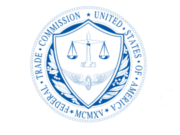Of the several policy proposals circulating Capitol Hill to correct lobbying abuses, strengthen the relative voice of citizens, and add accountability to the earmarking process, one policy prescription seems oddly out of place. Proposals for so-called “grassroots lobbying disclosure” do nothing either to sever the link between lobbyist cash and lawmakers’ pecuniary interests, or to strengthen the relative voice of citizens. Grassroots lobbying—encouraging or stimulating the general public to contact lawmakers about issues of general concern—is citizen-to-citizen communication that fosters citizen-to-lawmaker communication. It correspondingly weakens the relative strength of lobbyist-to-lawmaker communications, in furtherance of Congress’ objective in seeking lobbying reform. Efforts to limit grassroots lobbying, require disclosure of donors, or compel lobbyists to register with the government to assist groups in contacting fellow citizens, strips donors and consultants of constitutionally guaranteed anonymity, and would deprive organizations championing unpopular causes of skilled representation. This anonymity, long recognized and protected by the Supreme Court, fosters political association, guards against unwarranted invasions of privacy, and protects the citizens who fund or assist groups such as Progress for America or People for the American Way from calumny, obloquy, and possible retribution—including retribution by public officials. Disclosure is not always a good thing. The rationale for requiring disclosure of contributions to candidate campaigns, and disclosure of direct lobbying activity, is the same for protecting anonymity in the discussion of policy issues: to protect citizens from retribution by abusive officeholders. History demonstrates that while such retribution may be uncommon, it is real. Indeed, even today we read of a Texas prosecutor who has subpoenaed donor records for a group after the group ran grassroots lobbying ads that took a position contrary to that of the prosecutor. The abuse of non-profit entities by a handful of lobbyists to host golf trips or entertain lawmakers with donations from lobbyist clients can be cured in other ways, without enacting disclosure measures too attenuated to the problem Congress seeks to correct, and that could damage or diminish America’s system of information exchange for years to come.














